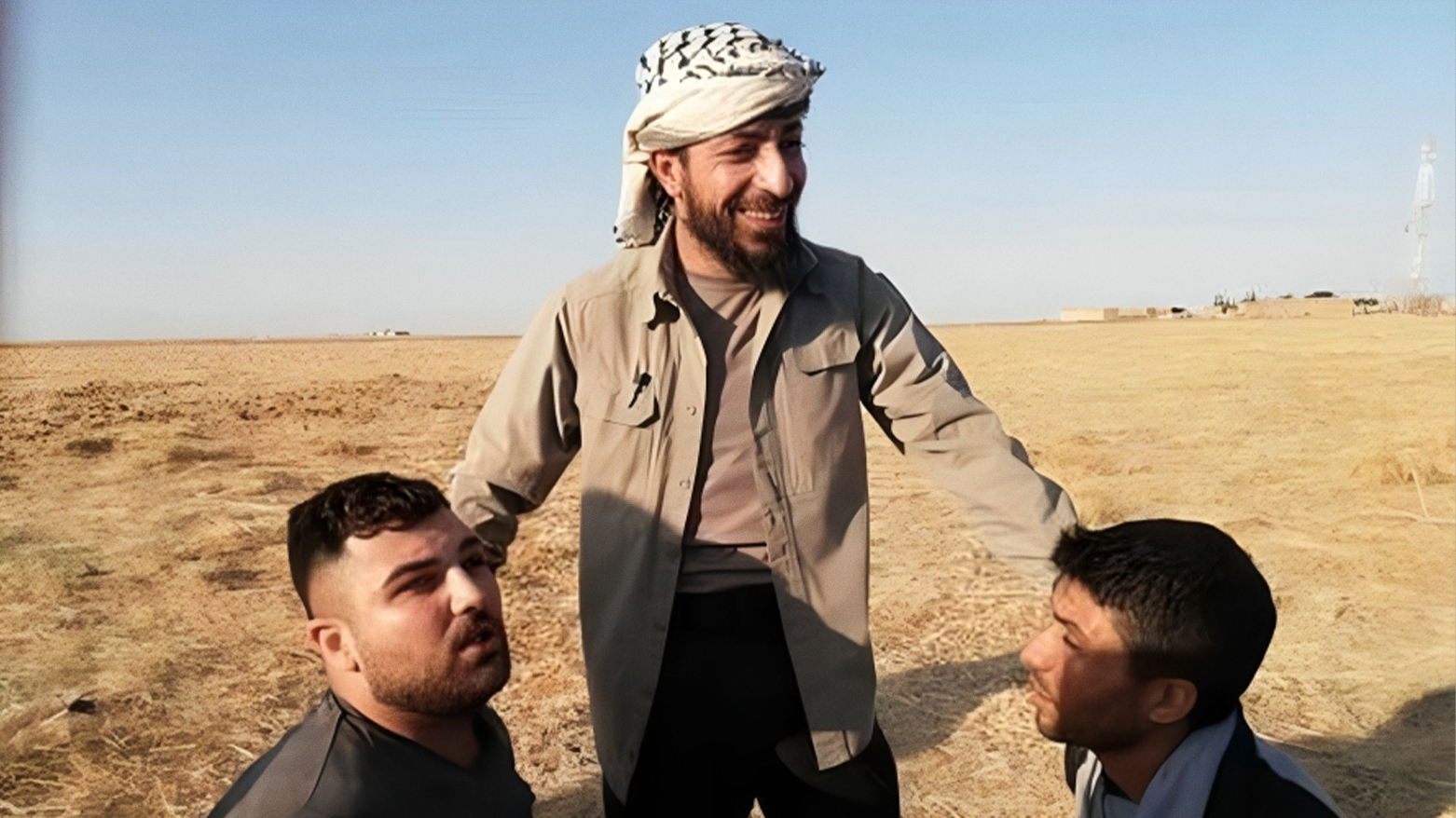U.S. Slams Ahmed al-Hayes as Syrian Army Commander, Breaking with Turkey
The appointment of “this individual who has a long record of human rights abuses and undermining our Defeat-ISIS mission to an official position is a serious mistake.”

WASHINGTON DC, United States (Kurdistan 24) - The U.S. has strongly criticized the appointment of Ahmed al-Hayes by the interim Syrian authorities as commander of a newly-formed Syrian army division in northeast Syria.
Hayes, who uses the nom de guerre, Abu Hatim Shaqra, emerged out of a Turkish-backed group of Syrian fighters, Ahrar al Sharqiya, which he led.
Indeed, in 2021, the U.S, sanctioned both Hayes and Ahrar al-Sharqiya for their widespread abuse of human rights, including those of Syria’s Kurdish population.
State Department Denounces Appointment of Ahmed al-Hayes
Syrian media reported on May 5 that al-Hayes had been appointed commander of the Syrian Army’s recently formed 86th Division, as the Institute for the Study of War explained.
Read More: U.S.-Sanctioned Militant Leader Appointed Head of Syrian Army Division
“Shaqra’s new 86th Division will reportedly operate in Raqqa, Deir ez Zor, and Hasakah provinces, which are sensitive commands given their large Kurdish population and the ongoing negotiations over the Kurdish-dominated SDF’s integration into state security services,” the Institute said.
Turkey has long supported armed groups in Syria. It played a key role in facilitating the overthrow of Bashar al-Assad’s Baathist regime in Damascus by Hayat Tahrir al-Sham, which has now become Syria’s interim authority.
It is very likely that al-Hayes’s appointment \reflects a Turkish objective, aimed at limiting Kurdish influence in Syria.
Asked at a press briefing on Thursday about al-Hayes’s appointment, State Department Spokesperson Tammy Bruce strongly denounced it.
“The interim authority’s decision to appoint this individual who has a long record of human rights abuses and undermining our Defeat-ISIS mission to an official position is a serious mistake that the U.S. does not support,” Bruce said.
Sanctions Against Ahmed al-Hayes and Ahrar al-Sharqiya
The U.S. first imposed sanctions on al-Hayes and his group Ahrar al-Sharqiya in the summer of 2021, under the Biden administration. As it did so, it noted the group’s targeting of Syrian Kurds.
The Treasury Department, in announcing the sanctions that July, described Al-Hayes as “Ahrar al-Sharqiya’s leader,” stating that he “is directly complicit in many of the militia’s human rights abuses.”
Al-Hayes “has been implicated in the trafficking of Yezidi women and children and has integrated former ISIS members into the ranks of Ahrar al-Sharqiya,” Treasury’s statement continued.
In describing the group, Treasury said, “Ahrar al-Sharqiya has a record of human rights abuse that includes the unlawful killing of Hevrin Khalaf, a Kurdish politician and Secretary General of the political party Future Syria, as well as her bodyguards in October 2019.”
“The United Nations High Commissioner for Human Rights identified the murders as a possible war crime,” it added, stressing their significance.
“Ahrar al-Sharqiya has killed multiple civilians in northeast Syria, including health workers,” it continued, as it explained that the group “has also engaged in abductions, torture, and seizures of private property from civilians, barring displaced Syrians from returning to their homes.”
Treasury’s statement also explained that Ahrar al-Sharqiya maintained “a large prison complex outside of Aleppo where hundreds have been executed since 2018.”
Al-Hayes commanded the prison, even as the prison also supported blatantly criminal activities, the Treasury Department explained.
Ahrar al-Sharqiya used the Aleppo prison “to operate an extensive kidnapping for ransom operation targeting prominent business and opposition figures from the provinces of Idlib and Aleppo,” it said.
Turkish-Backed
It was widely recognized at the time that Ahrar al-Sharqiya was among the several armed groups that Turkey supported in northern Syria to promote its influence there.
Turkey has long viewed the SDF as a hostile, terrorist force—the Syrian wing of the PKK, the Kurdistan Workers’ Party.
In the fall of 2019, the Voice of America (VOA) described a Turkish-backed offense aimed at the SDF. It was led by Turkish Special Forces, but included “nearly 14,000 Syrian rebels,” the VOA reported on Oct. 19, 2019. The rebel groups included Ahrar al-Sharqiya.
Thus, it would seem that al-Hayes has long-standing ties with Ankara and that little has changed over the past six years.
Turkey backed him then as an anti-Kurdish force in northern Syria, and it does so today.